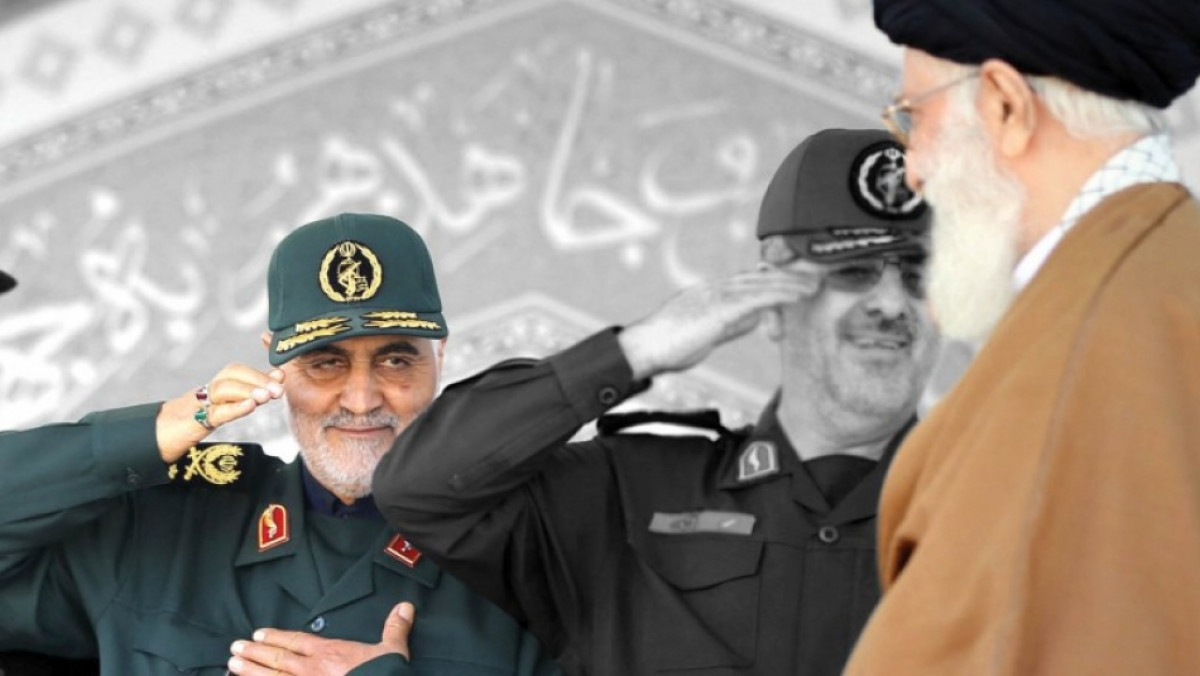 147
147
Untold Stories of the Religious Personality of Haj Qassem Soleimani.
Discovering the religious dimension of the character of Sardar -General in Persian- "Qassem Soleimani", the commander of the Quds Force of the Islamic Revolutionary Guard Corps in Iran, is one of the topics that is important for many Western experts and various foreign media and press, including the Guardian, The New Yorker, Al Jazeera, etc. These media have addressed it with the aim of emphasizing his attention to the rites of the religion of Islam and Shiite school of thought in particular.
Dexter Filkins writes in the New Yorker on September 30, 2013: "Soleimani is a true believer in Islam and he is far more polite than many people."
On March 13, 2014, Martin Jay wrote on the website of the Turkish Daily Sabah, quoting Iraqi commanders: "Soleimani taught us that death is the beginning of life, not the end."
It can even be said that his nickname "Hajji" (which a religious title) or "Hajj Qasim" (instead of any military titles) in Iraq, Syria and in the Persian Gulf countries in general is a proof of this claim, although he may have ignored this issue many times in the past.
In addition to calling Sardar Soleimani the mastermind of the region, the world's media try to portray his religious characteristics to their audiences.
If we review the published pictures of this Iranian commander on the battlefields of Iraq, we will definitely come across pictures that show him performing congregational prayers or performing ablutions.
One of the longtime comrades of General Haj Qasem Soleimani says: “Hajj Qasim is always on the battlefield, and when the voice of Allah Akbar (azaan) resounds on the battlefield, he rolls up his sleeves, stops working, performs ablutions and stands for prayer.”
Soleimani is in fact a motivation maestro that travels to oppressed countries and teaches them how to stand and resist against oppression
Some Western experts and writers compare Sardar Soleimani to real or legendary figures such as Carla, Nemesis, the ancient Roman commanders, and Caesar Suzu. While all of them have only been able to register their name in the minds of the warring dimension, but friend and foe proudly call Soleimani a general and on the other hand describe him as a pious commander.
Sardar Soleimani is someone who believes in religion. He is an intelligent commander and a committed to the homeland and honor. The combination of all these characteristics makes him different from others.
The operation to restore security to Samarra as well as the liberation of Amerli, Jurf al-Sakhr, Tuz Khurmato, and Jalulah proved the effective role of this heroic figure in the Region as a commander of Global Coalition Against ISIS. The defeat of ISIS made it clear to everyone that it was Qassem Soleimani who fought the terrorism and radical-takfirism. Not America and its allies.
One of the servants of the shrine of Imam Askari (AS) after the clashes in Samarra said: “Hajj Qasim was always present in the city of Samarra during the recent unrest and regularly visited the shrine to appeal and renew his spiritual strength.”
He added: “During this period, Sardar Soleimani chose the crypt of the shrine of Imam Askari (AS) for his night rest.”
For a more accurate understanding, Commander-in-Chief of Iranian Armed Forces hailed Qassem Soleimani for his achievements: "In my opinion, you, Mr. Soleimani, is martyr. You are an alive martyr. Yes, you are a martyr too. You have been martyred many times on the battlefield."
The martyrdom means a seal of approval to the loyalty of a person to the homeland. It manifests the main component of a military person.
Indeed, martyrdom has degrees. But Iranian Supreme Leader’s remark means that Sardar Soleimani has reached all three degrees of martyrdom. Ayatollah Khamenei even described him as an "alive
martyr" and "someone who has been martyred many times on the battlefield
Comment
Post a comment for this article